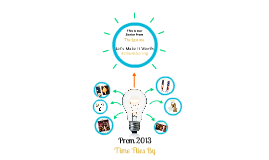Prom Presentation
Transcript: As of 2011, Texas was one of the top 10 states for minors participating in binge drinking, driving after drinking alcohol, and drinking before age 13. In 2012 alone, Texas teens were responsible for over 160 fatalities in accidents involving alcohol: there were more than 500 arrests for driving, and at least 2200 for drinking alone. To promote healthy celebration, as well as responsible practices during the Prom of 2015. We want to see everyone back on Monday Today is meant to educate you about the dangers and consequences of alcohol. If you have information about underage drinking, do the responsible thing and call 566-TIPS (8477). The population in El Paso has reached over 800,000 individuals, of which at least 29% are age 21 and under. In 2011, El Paso had 74 traffic fatalities, of which over 10% involved teens; alcohol was a factor in at least five of these. Underage drinking parties and social hosting events have become a popular tendency in the city. Despite the common knowledge of these social hosting events, there are rarely any reports whatsoever. Parents believe that as long as they are present, they can provide alcohol to any teens in the area. In Texas- What is the law? Teens who start drinking before age 15 are 4 times more likely to become alcoholics than those who wait until they are 21. Alcohol consumption can also inhibit reaction times. Teens with a pattern of risky behaviors are further led astray by the effects of alcohol, and this can lead to injuries, unplanned pregnancies, or even fatalities. In El Paso- Alcohol does not completely destroy brain cells, but it does mess with their ability to form new memories. Alcohol consumption at an early age can also lead to a slower and lesser development of the prefrontal cortex. The prefrontal cortex is a key region for complex thinking, planning, inhibition, and emotional regulation, all of which aid in complex decision making and simple bodily functions. In the US- Anyone under 21 is considered a minor in the state of Texas. For adults, a Blood Alcohol Content (BAC) of .08 is considered illegal. If you are under 21, the limit for your BAC is ZERO. Minors who are caught drinking can face a Class C misdemeanor, which may entail up to $500 in fines, an alcohol awareness class, 40 hours of community service and a 180 day loss of their driver's license. How does it affect our brains? Drinking alcohol not only has legal consequences, it can have lasting effects on the user's body and mind. Drinking alcohol has negative effects on brain cells. Alcohol consumption can cause difficulty breathing and irregularities in heart rate, which in extreme cases can lead to a coma and/or death. Alcohol poisoning can also be a serious issue. When people are intoxicated, they tend to throw up. However, the alcohol in their blood slows down their reflexes, which can lead them to choke and in some cases, even die. Purpose If a minor is caught with a BAC over .07 (7%), the punishment can go up to a $2,000 fine, a jail sentence of 180 days, and a year long suspension of their driver's license. In Texas, the only way minors are allowed to drink is if they are on private property, in the presence of THEIR legal guardians, who must be sober. Any adults caught providing alcohol to minors face a Class A misdemeanor, which guarantees either a $4,000 dollar fine, up to a year in jail, or even both. Jefferson/Silva Teens In The Driver Seat According to the University Medical Center study, a teen dies in an alcohol related crash every 19 minutes. In 2011, at least 39% of high school students admitted to drinking alcohol in the past month. 22% of teens admitted to having participated in binge drinking. 24% have been in a vehicle with an underage, drunk driver, and at least 8% have driven a vehicle while under the influence. Our Goal:

















